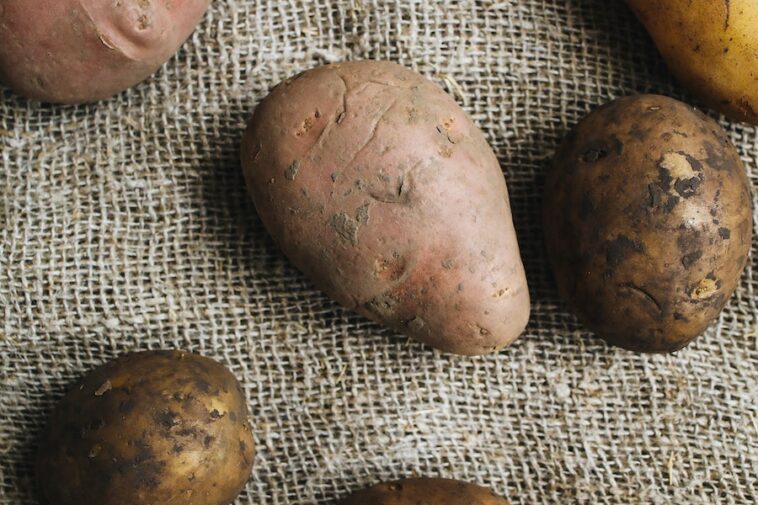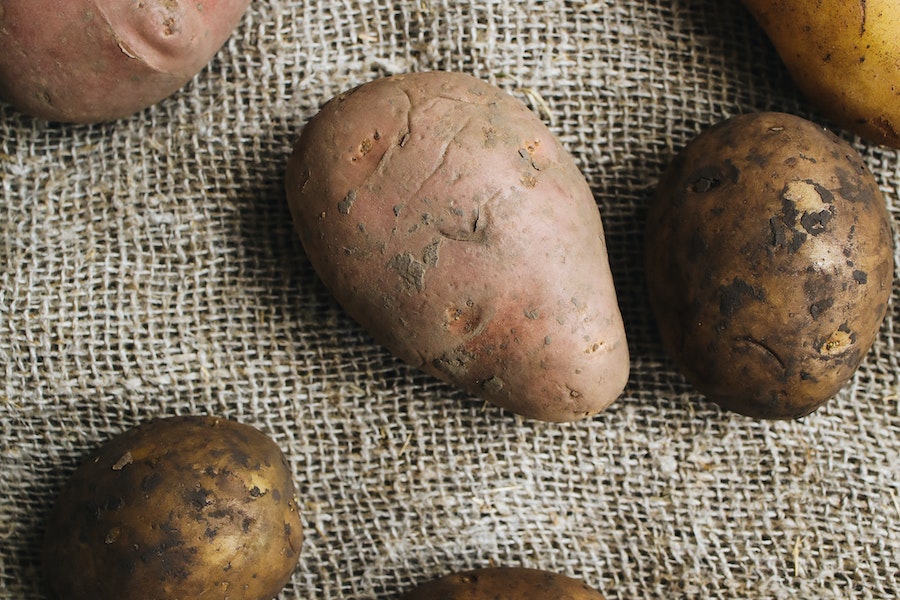In recent years, a peculiar health trend has captured the curiosity of wellness enthusiasts and social media platforms alike: the practice of putting potatoes in socks as a means of drawing out toxins from the body. Advocates of this unconventional detox method claim it can alleviate various health issues by purging the body of harmful substances through the skin. In this article, we embark on a scientific exploration to dissect the truth behind the potato sock detox myth, shedding light on whether this popular DIY health ritual is based on solid science or merely another internet-driven wellness fad.
Does Putting Potatoes In Your Socks Draw Out Toxins?
No, putting potatoes in your socks does not draw out toxins. This popular health trend lacks scientific evidence to support its claims. The skin is a formidable barrier, and the process of osmosis, often cited as the mechanism, is not applicable to detoxification in this context. Healthier and evidence-based detox methods exist, such as a balanced diet, hydration, and consulting healthcare professionals when necessary.

How To Prepare The Potato Socks?
- Gather Your Materials: You’ll need two medium-sized potatoes, a pair of thin cotton socks, and a knife.
- Wash and Scrub the Potatoes: Thoroughly clean the potatoes to remove any dirt or contaminants from the skin. You can use a vegetable brush for this purpose.
- Cut the Potatoes: Slice the potatoes into thin, round disks, approximately 1/8 to 1/4 inch thick. Make enough slices to cover the bottom of each foot.
- Arrange Potato Slices in Socks: Take one of the cotton socks and place the potato slices evenly along the length of the sock, ensuring they cover the sole of the foot. Repeat this process with the second sock.
- Put on the Potato Socks: Before going to bed, put on the potato-filled socks. Ensure they are snug but not too tight, as you want them to be comfortable throughout the night.
- Wear Overnight: Sleep with the potato socks overnight, usually for a duration of 8-10 hours.
- Remove and Discard: In the morning, remove the potato-filled socks and discard the potato slices.
- Wash Your Feet: Wash your feet to remove any potato residue, and you’re done.
Potential Risks And Side Effects
While putting potatoes in your socks may not be inherently harmful, there are potential risks and side effects to consider:
- Skin Irritation and Allergies: Some individuals may experience skin irritation or allergies to potatoes. If you have sensitive skin or a known potato allergy, this method could lead to discomfort, itching, or redness.
- Bacterial and Fungal Growth: The moisture from the potatoes can create a damp environment inside the socks, which may promote the growth of bacteria and fungi. This can lead to foot odor, infections, or skin issues.
- Unintended Consequences: Relying on unproven methods like potato sock detox may divert attention from legitimate health concerns. Delaying or avoiding conventional medical treatments in favor of unverified remedies can have serious consequences.
It’s essential to prioritize evidence-based health practices and consult with a healthcare professional if you have health issues or concerns. If you decide to try the potato sock method, monitor your skin for any adverse reactions and discontinue use if you experience discomfort or irritation. Always maintain good foot hygiene to reduce the risk of unwanted side effects.
Alternative, Evidence-Based Detox Methods
There are several evidence-based detox methods that promote overall health and well-being. While these methods may not involve placing potatoes in your socks, they have a scientific foundation and can be beneficial:
- Balanced Diet: Eating a well-balanced diet rich in fruits, vegetables, whole grains, and lean proteins provides essential nutrients and supports the body’s natural detoxification processes. Include foods high in antioxidants and fiber to help remove toxins from the body.
- Hydration: Staying properly hydrated is crucial for flushing toxins out of the body. Drinking an adequate amount of water helps the kidneys and liver eliminate waste products effectively.
- Exercise: Regular physical activity boosts circulation and promotes sweating, which can aid in the elimination of toxins through the skin. Exercise also supports the overall functioning of organs involved in detoxification, such as the liver.
- Saunas: Sauna sessions induce sweating and can help the body excrete toxins through the skin. This method is particularly effective for heavy metal detoxification.
- Chelation Therapy: This medical procedure involves the use of chelating agents, such as EDTA, to remove heavy metals from the body. Chelation therapy is administered under medical supervision and is effective for specific cases of heavy metal poisoning.
- Dialysis: For individuals with severe kidney dysfunction or failure, dialysis can effectively remove toxins and waste products from the bloodstream.
- Prescription Medications: In cases of overdose or poisoning, healthcare professionals may administer specific medications to counteract toxins and enhance their elimination.
- Consulting a Healthcare Professional: If you suspect exposure to toxins or have health concerns, it’s crucial to consult a healthcare provider. They can perform tests, offer guidance, and recommend appropriate detoxification strategies if necessary.
The Importance Of Consulting A Healthcare Professional
Consulting a healthcare professional is of paramount importance when it comes to matters of detoxification and overall health. Here are four key reasons why seeking their guidance is essential:
Healthcare professionals possess the knowledge and expertise to assess your individual health status, medical history, and specific concerns. They can tailor detoxification recommendations to your unique needs, ensuring that any potential risks or underlying health issues are taken into account. This personalized approach helps to avoid one-size-fits-all solutions that may not be suitable for everyone.
Many detox methods, especially those found online or through popular trends, lack scientific validation and may carry risks. Healthcare professionals can guide you toward evidence-based detoxification strategies that are safe and effective. They can also monitor your progress and adjust treatments as needed, ensuring that your health remains a top priority.
Sometimes, symptoms attributed to the need for detoxification may actually be indicative of underlying medical conditions. Consulting a healthcare professional allows for proper diagnosis and treatment of these issues. For example, persistent fatigue may be a sign of anemia, not toxins, and addressing the root cause is essential for lasting improvement.
In the realm of detoxification, misguided practices or the use of unproven methods can lead to unintended harm. This can include allergic reactions, electrolyte imbalances, or the delay of appropriate medical treatments. Healthcare professionals can help prevent these risks by offering evidence-based advice and intervening if necessary to protect your health.
Conclusion
In the realm of detoxification, it’s vital to separate evidence-based practices from unverified trends. While the allure of unconventional methods like the potato sock detox may be tempting, the absence of scientific support raises questions about their efficacy and safety. Prioritizing proven approaches like a balanced diet, hydration, exercise, and consulting healthcare professionals ensures a more reliable path to better health. Remember, health should always come first, and making informed choices based on credible information is the best way to achieve lasting well-being.
FAQs
Can Putting Potatoes In Socks Really Detoxify The Body?
No, there is no scientific evidence to support the claim that putting potatoes in socks can detoxify the body. It is a popular but unproven health trend.
Are There Any Proven Methods For Detoxification?
Yes, proven methods for detoxification include maintaining a balanced diet, staying hydrated, regular exercise, and consulting healthcare professionals for specific concerns.
What Are The Potential Risks Of Using Potato Socks For Detox?
Risks include skin irritation, allergies, bacterial or fungal growth, and neglecting genuine health issues in favor of unverified remedies.
Why Is Consulting A Healthcare Professional Important When Considering Detox Methods?
Healthcare professionals provide personalized guidance, ensure safety, identify underlying health conditions, and help prevent harm associated with unproven detox practices.
What’s The Best Approach To Achieving Overall Health And Well-Being?
Prioritize evidence-based health practices, seek professional advice when needed, and make informed choices based on credible information for long-term well-being.





